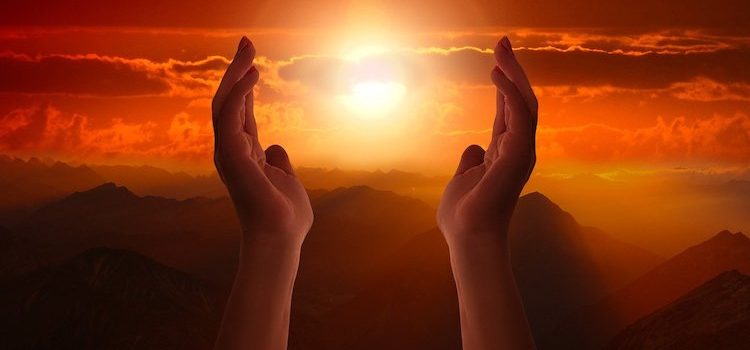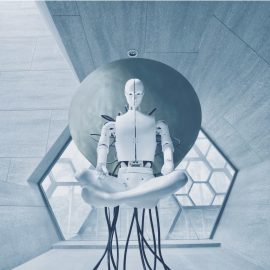

This article is an excerpt from the Shortform book guide to "A New Earth" by Eckhart Tolle. Shortform has the world's best summaries and analyses of books you should be reading.
Like this article? Sign up for a free trial here .
Is humanity moving towards a mass shift of consciousness? How is our collective ego harming the planet?
According to Eckhart Tolle, humanity has reached a critical point. We’ve grown so consumed with our collective ego that we can’t see anything past it. We are trapped in the endless cycle of wanting, fueling consumerism, and destroying the planet. In his book A New Earth, Tolle argues that now is the time for consciousness evolution—mass change is necessary today for the survival of humankind and the planet.
Here’s why we must act now or else it will be too late.
The Consciousness Evolution
According to Eckhart Tolle, humanity’s current state of consciousness has reached a threshold. This is because our destructive ability (caused by our ego) is intensifying at an unsustainable rate due to advances in technology. If we’re unable to evolve out of the mindless ego-driven state of consciousness that causes this destruction, we’ll end up killing our species and destroying the planet.
Tolle explains that when we connect with our inner self and live in a state of mindfulness, we will live in a state of non-attachment, nonjudgment, and nonresistance, which will allow us to break free from the ego’s control.
When we no longer form attachments to material, thought, and emotional elements, we’ll no longer generate greed, consumerism, and pollution caused by the endless cycle of wanting.
When we no longer judge things as “right and wrong” or “good and bad,” we’ll no longer have unrealistic expectations that cause disappointment, anger, resentment, and other forms of suffering.
Consequently, we’ll cease resisting what simply is and cannot be changed. Tolle notes that nothing in the world is inherently good or bad, it’s only our judgments of them that make them so. We’ll no longer feel the stress, greed, envy, and negativity supplied by the ego because we no longer crave external validation. We will only feel peace.
If the bulk of humanity dedicates itself to achieving this state of mindfulness, Tolle asserts that the violence and destruction caused by the collective human ego will cease.
Luckily, Tolle explains that a human evolution to this evolved state of consciousness is possible and has been underway for thousands of years. He argues that the first sparks of the consciousness evolution were the ancient spiritual teachers like Buddha, Jesus, and Lao Tzu.
These teachers and their respective religions all preached the same two-fold fundamental truth that is the basis of Tolle’s argument: (1) The normal state of the human mind is inherently dysfunctional, and (2) a radical transformation of human consciousness to overcome this dysfunction is possible and necessary, and it’s the purpose of human life.
Hinduism, Christianity, and Buddhism refer to inherent human dysfunction, respectively, as maya, original sin, and dukkha. They all view the transformation of consciousness as the solution to this innate dysfunction, and they refer to it, respectively, as enlightenment, salvation, and the end of suffering.
The teachers who founded these religions embodied the evolved state of consciousness that the rest of humanity needs to achieve, and they encouraged others to evolve through their teachings.
Buddhism, Christianity, and Hinduism: Dualistic Religions
Tolle explains that the spiritual leaders who sparked the consciousness evolution all preached that humans are dysfunctional and must reach an enlightened state—this two-fold truth is referred to as religious dualism.
Religious Dualism is the belief that there are essentially two contrasting components of life—humanity and something “divine,” often humanity and God. Ultimately, dualistic religions all assert that something is inherently wrong with humanity and that there is some higher level of being we’re meant to attain. Until we reach this higher level, whether it’s becoming enlightened (Hinduism), or reaching heaven (Christianity), we will finally be happy and escape our suffering. Ultimately, dualistic religions are founded on the basis of good versus evil. The purpose of human life is to battle our evil instincts to reach the ultimate “good.”
Similar to religious dualism is philosophical dualism, which asserts that human consciousness, or the spirit, is separate from our physical body. In other words, our consciousness will continue on once our body has died. Tolle’s philosophy would be considered dualistic.
On the other side is monism, which asserts that consciousness is simply the result of evolution and our highly developed brains. While dualism and monism are opposing beliefs, there are multiple branches of each philosophy that interpret the dualistic or monistic approach differently, some even overlapping certain beliefs with the opposing philosophy.

———End of Preview———
Like what you just read? Read the rest of the world's best book summary and analysis of Eckhart Tolle's "A New Earth" at Shortform .
Here's what you'll find in our full A New Earth summary :
- Eckhart Tolle's guide on how to evaluate your consciousness
- How to overcome ego-driven thoughts and behaviors
- Why humanity must undergo an evolution of consciousness






